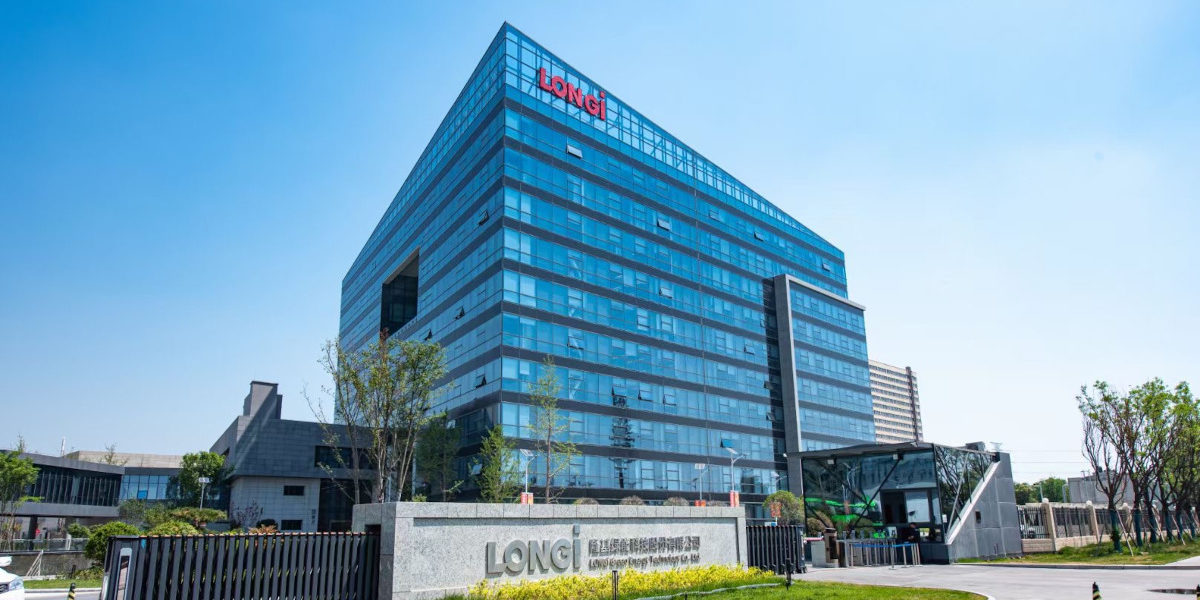From pv magazine Germany
The patent dispute between module manufacturer Hanwha Q-Cells and its various competitors has been waged on several continents since 2019. The South Korean manufacturer has filed lawsuits against Longi, JinkoSolar and REC in Germany, the United States and Australia.
In the United States, the court case is already much more advanced than the one in Germany. Longi said on Thursday that the US Court of Appeals for the Federal Circuit recently issued a ruling invalidating Hanwha Q-Cells' US patent US9893215B2.
According to Longi, the judges have upheld a previous decision of the US Patent and Trademark Office (USPTO) and have declared the patent invalid. The Chinese PV manufacturer has thus won the legal dispute in the US International Trade Commission (ITC), as well as patent nullity proceedings against Hanwha Q-Cells in the United States.
In Europe, meanwhile, an appeal hearing is still pending in Germany. There are also ongoing proceedings in the Netherlands and France.
Hanwha Q-Cells won in the first instance before a district court in the Netherlands. The judges ruled that the competitors should no longer sell their solar modules based on patented passivation technology. A few months later, the court also ruled that they should recall PV modules that have already been installed.
Dutch dispute
Longi responded to the latest ruling by saying that a favorable decision by a French court on the matter could also reverse the outcome of the legal dispute in the Netherlands.
Popular content
The Chinese manufacturer told pv magazine that on June 7, a French court ruled that Hanwha's seizures in France in 2021 were illegal and thus invalid. More specifically, Longi said the court ruled that Hanwha had acted in a disloyal manner by withholding crucial information from the French court. That withheld information included an October 2020 opinion issued by the Opposition Division of the European Patent Office (EPO) in favor of the invalidity of its patent.
Longi said the decision of the French court was influenced by the fact that it had been purposely misled by Hanwha. It said the South Korean side wanted to obtain highly confidential, sensitive information from its competitor.
“As a result, the documents as obtained in these French seizures are being recalled and they will be rendered unusable unless the French judgment is appealed and reversed. For the time being, the aforementioned judgement is immediately enforceable,” the company said. “The decision will directly impact the French proceedings, but Longi will also consider its legal options in other related legal proceedings where these documents have been actively used by Hanwha. Since a significant portion of Hanwha’s evidence in the Dutch proceedings were obtained during the French seizures or were only obtained because of the illegally seized documents and information, Longi strongly believes that these developments demonstrate once again that the Dutch court was wrong to decide prematurely in summary proceedings.”
Longi said that its customers were not affected by the Dutch decisions.
“All in all, there hasn't been any finalized infringement decision against Longi in any jurisdiction with regards to the disputes between Hanwha and Longi,” the manufacturer said.
The patent dispute dates back to spring 2019. In March 2019, Hanwha Q-Cells filed a patent infringement lawsuit in Germany and the United States, and shortly afterward in Australia, against Longi, REC and a third defendant, JinkoSolar. It said its three competitors illegally used its patented technology in their products.
In June 2020, a regional court in Düsseldorf ruled in favor of Hanwha Q-Cells in the first instance. REC and Longi Solar appealed the decision, while Hanwha Q-Cells initiated the preliminary enforcement of it. In Hanwha Q-Cells' view, Longi Solar and REC did not take sufficient measures to comply with the court-ordered recall obligation.
This content is protected by copyright and may not be reused. If you want to cooperate with us and would like to reuse some of our content, please contact: editors@pv-magazine.com.



7 comments
By submitting this form you agree to pv magazine using your data for the purposes of publishing your comment.
Your personal data will only be disclosed or otherwise transmitted to third parties for the purposes of spam filtering or if this is necessary for technical maintenance of the website. Any other transfer to third parties will not take place unless this is justified on the basis of applicable data protection regulations or if pv magazine is legally obliged to do so.
You may revoke this consent at any time with effect for the future, in which case your personal data will be deleted immediately. Otherwise, your data will be deleted if pv magazine has processed your request or the purpose of data storage is fulfilled.
Further information on data privacy can be found in our Data Protection Policy.